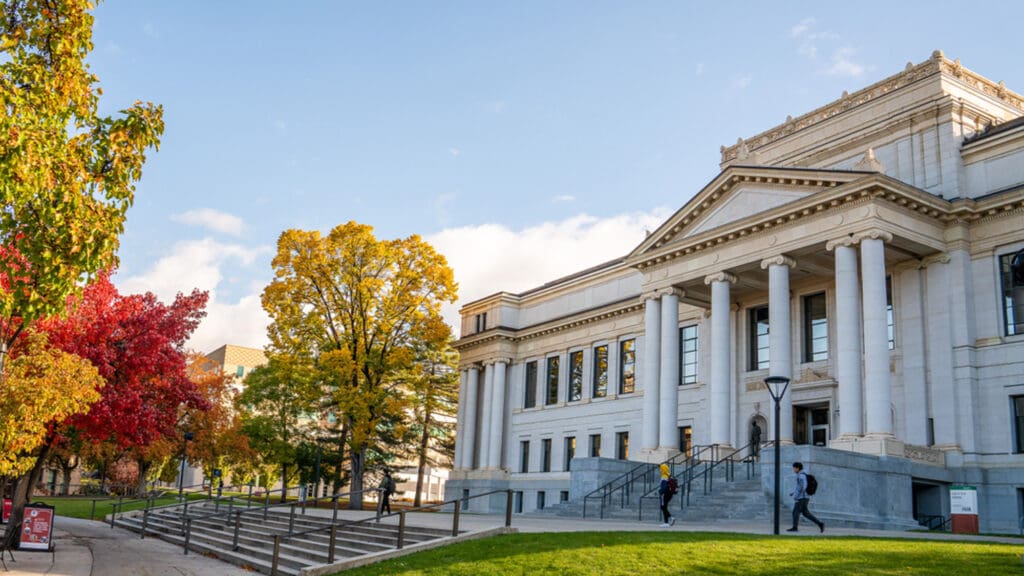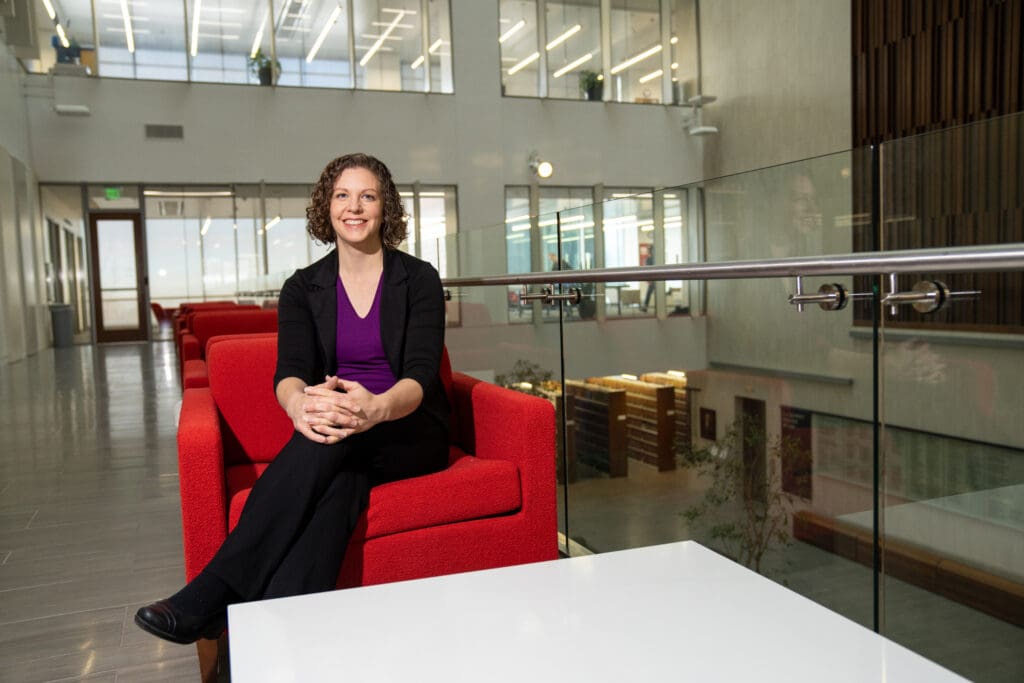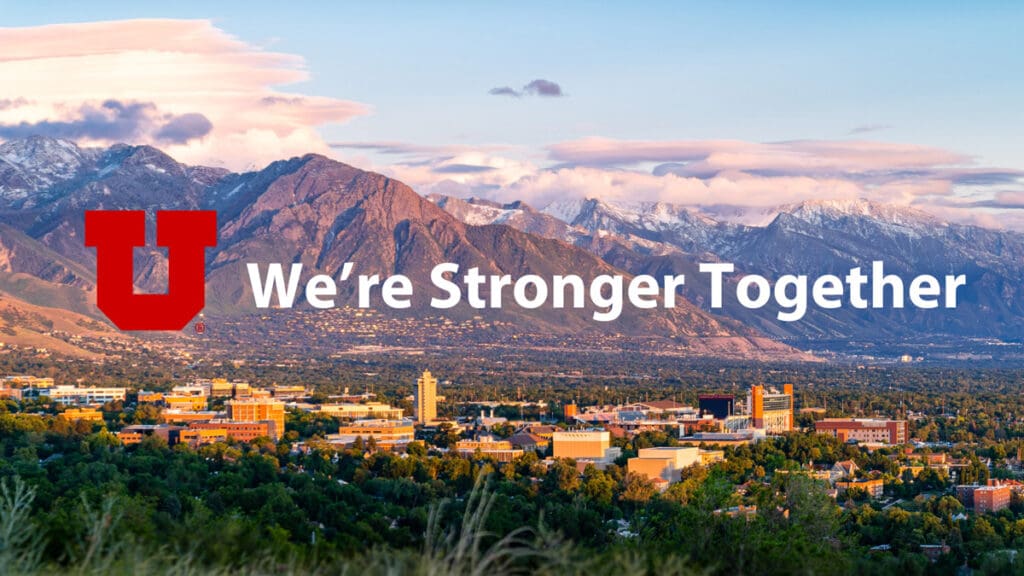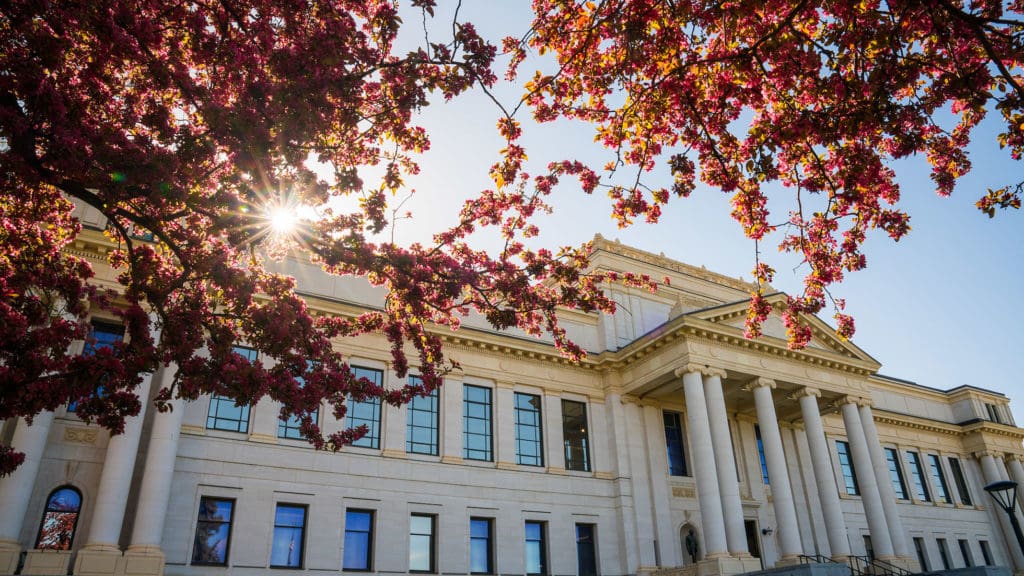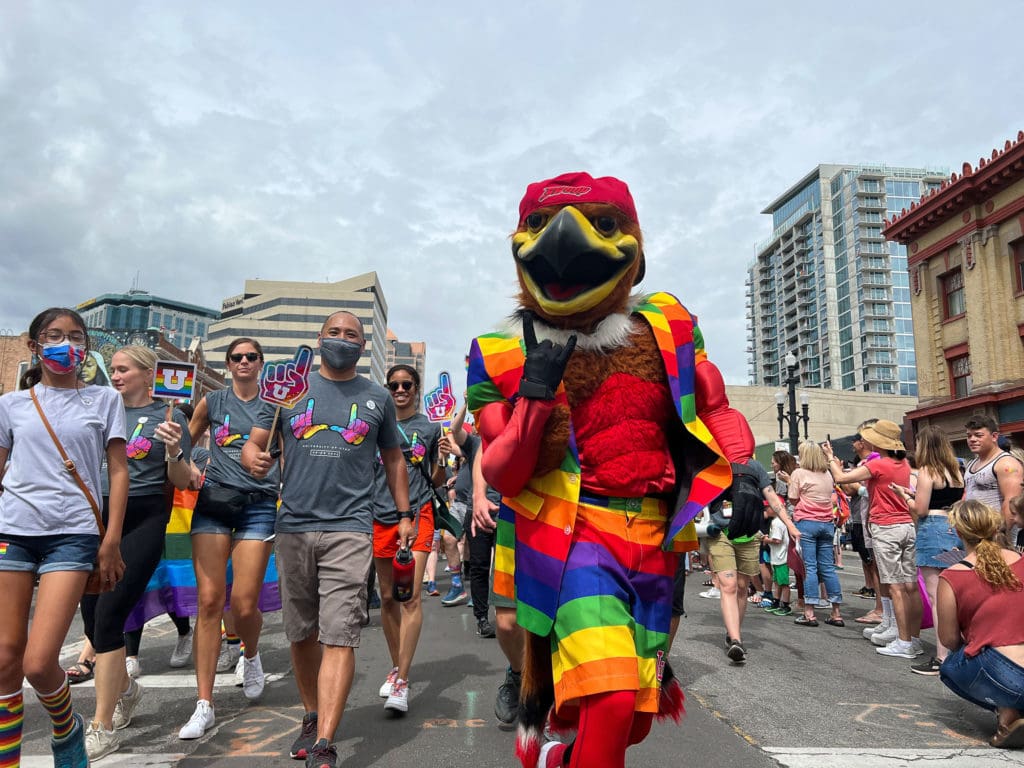July 25, 2023
Community Thriving
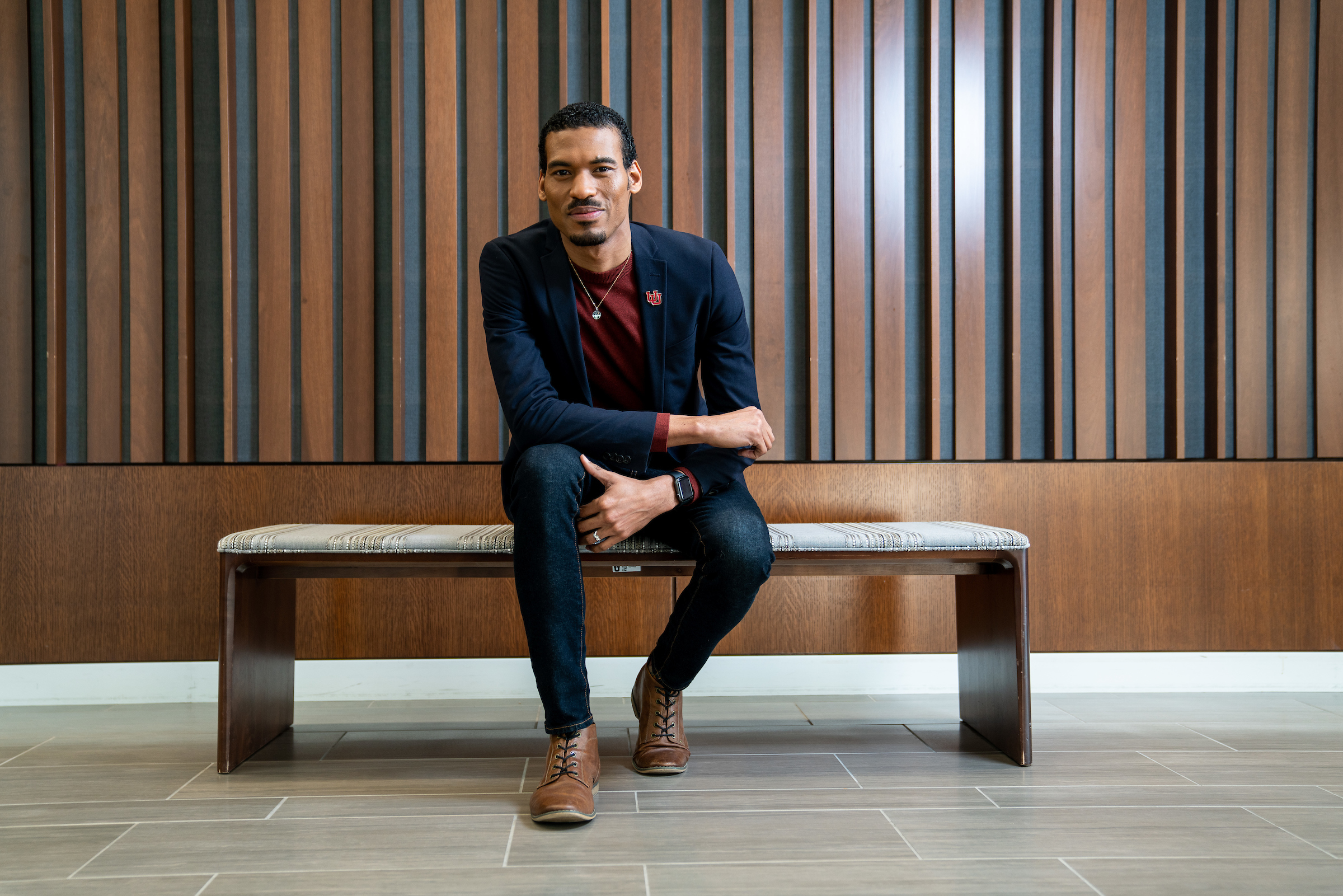
Bryan Hubain makes it his mission to help U of U students achieve their dreams
When Bryan Hubain, Ph. D. looks back on his childhood, the events that transpired—and profound, meaningful experiences—have informed who he is today. One of these experiences inspires some of his work at the University of Utah.
During moments of his childhood on the island of St. Lucia, Bryan Hubain did not always have access to food. There were times when stale or moldy bread was all that was available. His mother would get creative by scraping the mold off, adding butter and cheese, and warming it in the oven. Seeing his mother work to address hunger, find alternative ways to support other children in their community, and form meaningful relationships shaped who Bryan Hubain would become.
Eventually, Bryan Hubain immigrated to the United States to pursue his education, ultimately earning a doctoral degree and working his way into his current position as associate vice president for student development and inclusion in student affairs at the University of Utah. Dr. Hubain provides supervisory oversight to the Basic Needs Collective, LGBT Resource Center, Veterans Support Center, Women’s Resource Center, and Financial Wellness Center while also serving on various university committees. Additionally, he coordinates the ELP Graduate Assistant program, co-chairs the Student Affairs Diversity Committee, and is one of the liaisons for the Ute Indian tribe and the university.
Dr. Hubain works tirelessly to connect students to resources and programs that will help them remain at the U while striving to contribute to the overarching goal of creating a sense of belonging for all students.
“The barriers students experience, in so many ways, are man-made. They are systemic and based on differences in the human experience. And this whole vision of world peace really targets differences that aims to exclude,” Dr. Hubain says. “When I think of the University of Utah removing barriers for students, it serves that ultimate goal of achieving world peace and serving the public good.”
Being a student in today’s world isn’t always easy. Every student has their own story, their obstacles to overcome. And some experience hardship that makes pursuing an academic degree feel nearly impossible.
Dr. Hubain clearly remembers assisting a single mom with a newborn baby living in a homeless shelter and, at times, feeling unsafe. He knows that it is sometimes difficult for students to be vulnerable and ask for help, and when that student came forward, his immediate aim was to help her find a safe place to live and access resources so she could focus on school and taking care of her baby. This student’s story is one example among many others who face extreme barriers to attaining their higher education degree but are not willing to give up their dreams.
Dr. Hubain says that normalizing and destigmatizing conversations about hardship, trauma, hurt, mental health, barriers to childcare, and access to money to pay rent is essential to helping ensure the success of university students.
“Normalizing allows a student to be more comfortable sharing their truth and hardship so we can find solutions to help,” Dr. Hubain says. Resources provided by Basic Needs Collective and Financial Wellness Center aim to give students the tool to navigate barriers while supporting them to address the insecurities they are currently facing.
As part of his continued efforts to spark conversations around difference, overcoming hardship, and encouraging empathy and inclusion, Dr. Hubain and his team launched the I Am U Thriving campaign in 2021. The storytelling campaign aims to create a sense of identity pride, and community at the U. It reflects the community of all backgrounds at the University of Utah while challenging stereotypes of groups of people.
Getting closer to breaking down barriers and creating a sense of belonging—making movement toward peace—takes a community. That’s where philanthropy comes in. Whether donating to a specific initiative or program or creating a scholarship, philanthropic support can make all the difference.
“When students come to me, they’re usually in a very vulnerable place—and very desperate. Desperation can lead us down some dark roads. When we remove barriers that the students don’t have to worry about, we see almost a whole other person in front of us. We see a total transformation,” Dr. Hubain says. “Scholarships allow students to see hope—something much larger than themselves. But they also allow them to see that, as a university, we’re here for them. Scholarships and other forms of aid help students achieve their dreams and goals. But most of all, it allows them to maybe see things that they hadn’t seen around them before. And that is really powerful.”
